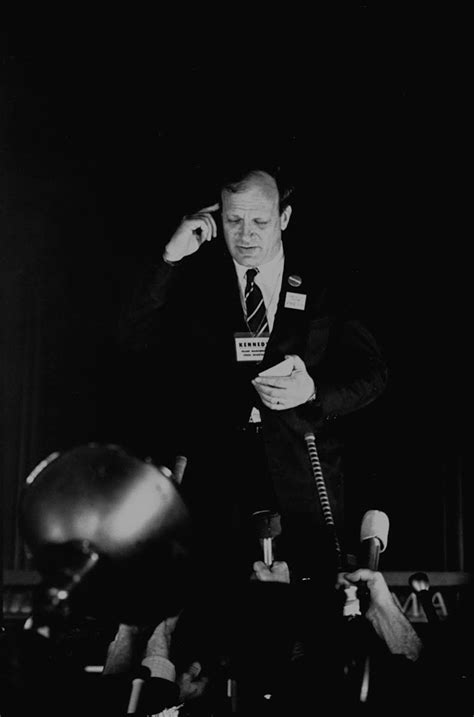A Quote by Robertson Davies
The average politician goes through a sentence like a man exploring a disused mine shaft-blind, groping, timorous and in imminent danger of cracking his shins on a subordinate clause or a nasty bit of subjunctive.
Related Quotes
The prospect of his future life stretched before him like a sentence; not a prison sentence but a long-winded sentence with a lot of unnecessary subordinate clauses, as he was soon in the habit of quipping during Happy Hour pickup time at the local campus bars and pubs. He couldn’t say he was looking forward to it, this rest-of-his-life.
A dependent clause (a sentence fragment set off by commas, dontcha know) helps you explore your story by moving you deeper into the sentence. It allows you to stop and think harder about what you've already written. Often the story you're looking for is inside the sentence. The dependent clause helps you uncover it.
A politician will always tip off his true belief by stating the opposite at the beginning of the sentence. For maximum comprehension, do not start listening until the first clause is concluded. Begin instead at the word 'BUT' which begins the second, or active, clause. This is the way to tell a liberal from a conservative - before they tell you. Thus: 'I have always believed in a strong national defense, second to none, but...(a liberal, about to propose a $20 billion defense cut).
With this recitation of paraphernalia and detritus, O'Brien manages to encapsulate the experience of an army and of a particular war, of a mined and booby-trapped landscape, of cold nights and hot days, of soaking monsoons and rice paddies, and of the possibility of being shot, like Ted Lavender, suddenly and out of nowhere: not only in the middle of a sentence but in the midst of a subordinate clause.
Augustus, perhaps you’d like to share your fears with the group.” “My fears?” “Yes.” “I fear oblivion,” he said without a moment’s pause. “I fear it like the proverbial blind man who’s afraid of the dark.” “Too soon,” Isaac said, cracking a smile. “Was that insensitive?” Augustus asked. “I can be pretty blind to other people’s feelings.
It is not like studying German, where you mull along, in a groping, uncertain way, for thirty years; and at last, just as you think you've got it, they spring the subjunctive on you, and there you are. No- and I see now plainly enough, that the great pity about the German language is, that you can't fall off it and hurt yourself. There is nothing like that feature to make you attend strictly to business.
It is by no means enough that an officer should be capable. . . . He should be as well a gentleman of liberal education, refined manners, punctilious courtesy, and the nicest sense of personal honor. . . . No meritorious act of a subordinate should escape his attention, even if the reward be only one word of approval. Conversely, he should not be blind to a single fault in any subordinate.





































